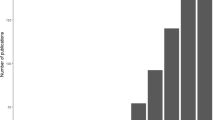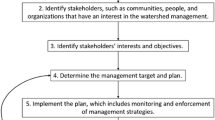Abstract
The Land Condition Trend Analysis (LCTA) program is the US Army's standard for land inventory and monitoring, employing standardized methods of natural resources data collection, analyses, and reporting designed to meet multiple goals and objectives. Critical to using LCTA data in natural resources management decisions is the ability of the LCTA protocols to detect changes in natural resources. To quantify the ability of LCTA protocols to detect resource changes, power analysis techniques were used to estimate minimum detectable effect sizes (MDES) for selected primary and secondary management variables for three Army installations. MDES for a subset of primary variables were estimated using data from 27 installation LCTA programs. MDES for primary and secondary variables varied widely. However, LCTA programs implemented at larger installations with lower sampling intensities detected changes in installation resources as well as programs implemented at smaller more intensively sampled installations. As a national monitoring program that is implemented at individual installations, LCTA protocols provide relatively consistent monitoring data to detect changes in resources despite diverse resource characteristics and implementation constraints.
Similar content being viewed by others
Author information
Authors and Affiliations
Rights and permissions
About this article
Cite this article
ANDERSON, A. Detecting Changes in Natural Resources Using Land Condition Trend Analysis Data. Environmental Management 29, 428–436 (2002). https://doi.org/10.1007/s00267-001-0017-z
Issue Date:
DOI: https://doi.org/10.1007/s00267-001-0017-z




